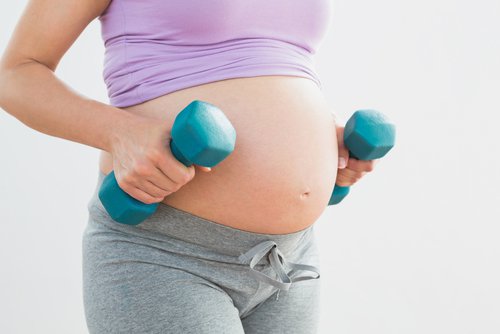The benefits of exercising during pregnancy begin immediate and will last your whole life. Physical activity that maintains physical fitness and overall health and wellness is the type of exercise during pregnancy that is important and can help with some common discomforts of pregnancy and even help prepare your body for labour and delivery. Overall and in most cases, exercise is safe during pregnancy. You will usually find it is even recommended.
Typically, the first rule of thumb is if you were physically active before you were pregnant, it is likely safe to remain active during pregnancy, More than likely, your healthcare provider will tell you to remain active, as long as it is comfortable and there are o other health conditions suggesting otherwise. Now is not the time to exercise for weight loss however, proper exercise during pregnancy will likely help with weight loss after the delivery of your baby.
Here are some of the benefits from exercise during pregnancy you may experience:
- Helps reduce backaches, constipation, bloating and swelling
- You’re likely to gain less weight
- Increases your energy
- Improves your mood
- Improves your posture
- Promotes muscle tone, strength and endurance
- Helps you sleep better
- You’ll get positive attention
- Your labour may be shorter
- You feel less like a beached whale and more like a hot mama
- You’ll likely experience less leg swelling
- You’re more likely to avoid prenatal depression
- You may boost your child’s athletic potential
- You’ll bounce back faster after delivery
- Your child may have a healthier heart
Activities that are generally considered to be safe for pregnant mums include:
- Aquarobics
- Cycling
- Jogging
- Pilates
- Yoga, stretching and other floor exercise
- Pregnancy- specific exercise classes
- Swimming
- Walking
Don’t forget your pelvic floor exercises too. It’s important to do these from the very start of pregnancy, and resume them when it feels comfortable after the birth. When you’re exercising, listen to your body. Don’t push yourself like you might do when you’re not pregnant, stay well hydrated and know when to stop. 
If you have any doubts or questions about what types of exercise are safe for you at your stage and condition, please consult your RIM PT or GP!

